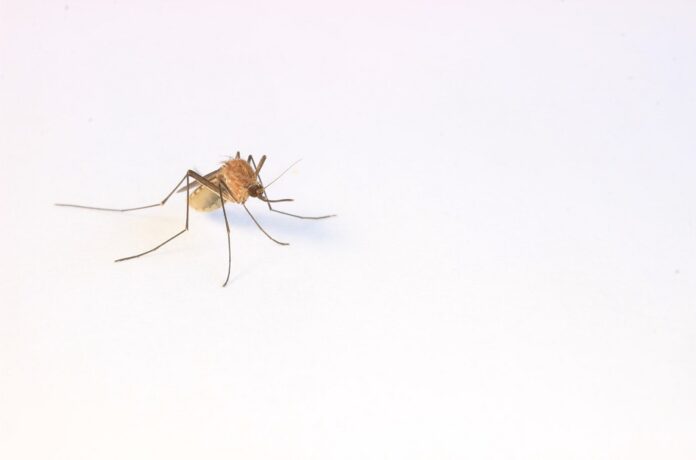Mosquitoes can be annoying, and their bites can be uncomfortably itchy. They are also known as the carriers of various diseases, like dengue, malaria, etc. You can also easily get annoyed by the buzzing sound they make while flying. If all these reasons are enough to make you get rid of mosquitoes from your house, we have something for you. We’ve curated this epic guide that lists the top five effective yet natural ways to help you repel mosquitoes. You can use any one or more of these ways to make your house mosquitoes-free at the earliest. So let’s quickly check out the ways shared below.
Use a Natural Mosquito Repellent
One of the easiest, effective ways to repel mosquitoes is to use an herbal mosquito repellent. Natural repellents are made using powerful yet organic ingredients that don’t have any side effects. What makes natural repellents desirable to most people is that it contains various antibacterial, anti-fungal, and anti-inflammatory properties. If you have any children and pets at home, you should always choose natural mosquito repellents instead of chemical-laced ones.
When you’re getting so many benefits from one product, why look for other options? The market currently offers various organic mosquito repellents, and the prices are also competitive. If you’re someone with any skin allergy, you should stick to herbal repellent options. They don’t react negatively to your skin, giving you any skin allergies or infections.
Place Some Mosquito Repellent Plants
Mosquitos target people by the odor and gases released by them. Take sweat, smelly feet, and carbon dioxide, for example. Mosquitos and other blood-sucking bugs can smell carbon dioxide released by humans from as far as 150 feet away. Hence, if you want to distract them or prevent them from finding you, consider placing some mosquito repellent plants in your house.
Mosquito repellent plants can easily block the bug’s scent receptors, making it difficult for them to find humans. But you should know that ordinary garden plants are not enough for this purpose. You need plants like basil, rosemary, lavender, lemongrass, marigold, and others with a high concentration of scent stored in them.
Burn Camphor in Mosquito Infested Area
An ancient yet effective way to turn away mosquitos is using camphor in and around the infested area. You must have known camphor for its excellent properties of helping people with a cold. It is generally rubbed on people’s chests suffering from severe cold to give instant relief. The pungent smell originating from camphor helps open up peoples’ nasal passages. But according to many, camphor has various other uses, and repelling mosquitos is one of them.
It is the same smell that overwhelms mosquitos, ensuring they stay away. Camphor comes in various forms, so if your purpose is to do away with the mosquitos, buy camphor that burns. To see its impact, you have to burn camphor by closing the doors and windows, and the results will be visible within 30-minutes. Since camphor is all-natural, it doesn’t generally affect people with allergies. Mosquito repellent herbal is another excellent natural repellent. It comes in various pleasant fragrances and does an effective job at keeping mosquitos away from people.
Apply Neem Oil on Exposed Body Areas
Living in a house infested with mosquitos can be a harrowing ordeal. But it is easy to get rid of them using natural means. Neem oil is a tried and tested way used to repel mosquitos for ages. Neem plant is used to extract this oil, and it has a very intense smell. It is believed that it is the smell that drives mosquitoes away. You can witness Neem oil being used in major tribal areas where commercial mosquito repellents are not readily available.
If you like relaxing in your house in comfy clothes that leave your hands and legs exposed, Neem oil is all you need. Although you should avoid applying Neem oil directly onto your hands and legs, it can be used by mixing it with coconut oil for better results. Keep the concentration of Neem oil high in the mixture, and you will see mosquitos turning away from you. The market has organic and filtered versions of Neem oil, so always choose the organic option for visible results.
Use Garlic as a Natural Insect Solution
Garlic can be easily found in many households, but people rarely knew that they could use it to repel mosquitos. Garlic has a pungent smell, and its sulfur content does an excellent job at keeping mosquitos away. If they inhale garlic smell in your house, you can expect to not see them again for quite a long time. The ideal way to use garlic as a natural mosquito repellent is by crushing some garlic gloves and adding it to boiling water.
Once the boiling water is well mixed with the crushed garlic cloves, sieve the water into a spray water bottle and sprinkle it throughout your house. The resultant smell will act as a natural mosquito repellent. The garlic smell will go away within minutes, so you don’t have to worry about filling your house with its intense smell. Luckily, the mixture of garlic and water works even after its smell disappears from the house. You have to try this solution at least once to witness its results, and you won’t be left disappointed.
Repelling Mosquitoes in the Natural Way
No one likes to have mosquitos in their house, but it can become unavoidable in some conditions. If your house is located anywhere near a pond or a place with standing water, you are sure to have mosquitos in your home. Excessive vegetation can also be attributed to the growing number of mosquitos in your house. But if you use the natural and effective ways shared in this guide, you can eliminate them. Since the methods discussed above are all natural, anyone can implement them without worry.


